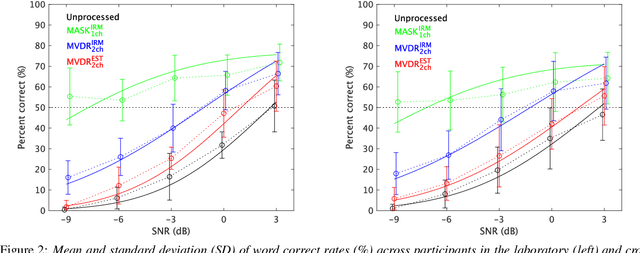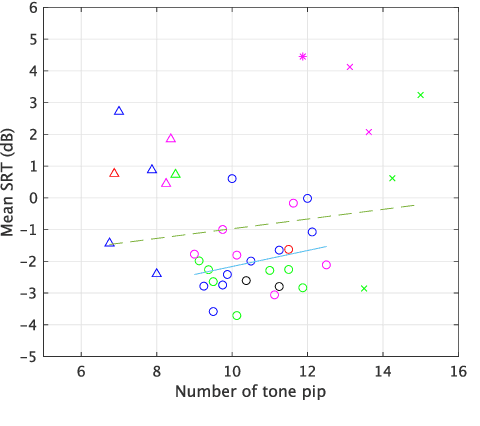Subjective intelligibility of speech sounds enhanced by ideal ratio mask via crowdsourced remote experiments with effective data screening
Paper and Code
Mar 31, 2022



It is essential to perform speech intelligibility (SI) experiments with human listeners to evaluate the effectiveness of objective intelligibility measures. Recently crowdsourced remote testing has become popular to collect a massive amount and variety of data with relatively small cost and in short time. However, careful data screening is essential for attaining reliable SI data. We compared the results of laboratory and crowdsourced remote experiments to establish an effective data screening technique. We evaluated the SI of noisy speech sounds enhanced by a single-channel ideal ratio mask (IRM) and multi-channel mask-based beamformers. The results demonstrated that the SI scores were improved by these enhancement methods. In particular, the IRM-enhanced sounds were much better than the unprocessed and other enhanced sounds, indicating IRM enhancement may give the upper limit of speech enhancement performance. Moreover, tone pip tests, for which participants were asked to report the number of audible tone pips, reduced the variability of crowdsourced remote results so that the laboratory results became similar. Tone pip tests could be useful for future crowdsourced experiments because of their simplicity and effectiveness for data screening.
 Add to Chrome
Add to Chrome Add to Firefox
Add to Firefox Add to Edge
Add to Edge